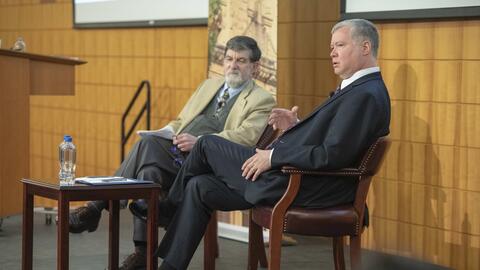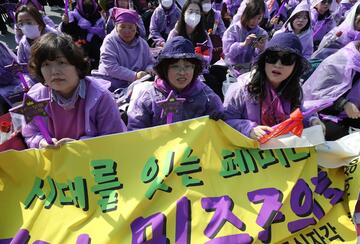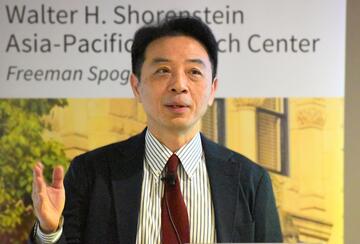Korea Program at APARC - News
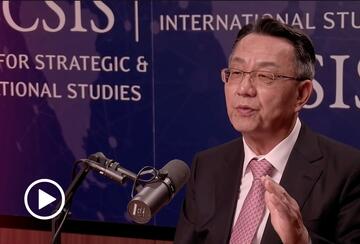
Watch Stanford sociologist Gi-Wook Shin discuss his book, The Four Talent Giants, on the Center for Strategic and International Studies' video podcast, The Impossible State. Shin introduces a framework that explains how Japan, Australia, China, and India became economic powerhouses and what lessons these Asia-Pacific "talent giants" offer to other nations as they face increasingly fierce global competition for talent in the AI era.
Minyoung An, a postdoctoral fellow with the Korea Program and the Stanford Next Asia Policy Lab at APARC, studies how gender inequality shapes migration pathways and return decisions among South Korean highly skilled women, highlighting risks to Korea's long-term future and revealing that gender is a powerful yet often overlooked driver of global talent flows.

From the practices of higher education institutions to diaspora networks, talent return programs, and immigration policies of central governments, a comparative analysis by Stanford sociologist Gi-Wook Shin shows how different national human resource strategies shape economic success.
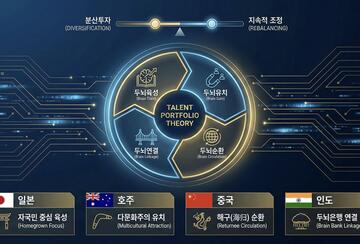
Without Securing Talent, Korea Has No Future
Without Securing Talent, Korea Has No Future
To survive in the global competition for talent while facing the AI era, low fertility, and the crisis of a new brain drain, South Korea must comprehensively review and continuously adjust its talent strategy through a portfolio approach.
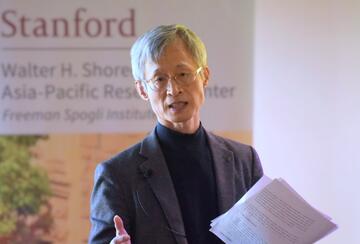
Byongjin Ahn offers an insider’s look at how President Lee Jae-myung’s early leadership is reshaping South Korea’s political order, revealing the tensions between pragmatic governance, fragile liberal norms, and the country’s emerging AI-driven strategic ambitions.
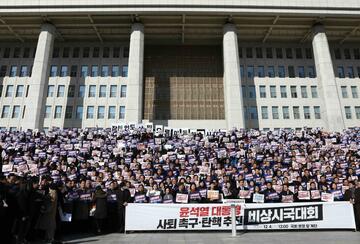
The country’s political polarization has metastasized. What can be done?
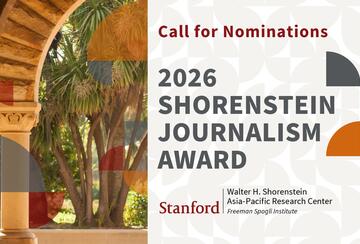
Sponsored by Stanford University’s Shorenstein Asia-Pacific Research Center, the annual award recognizes outstanding journalists and news media outlets for excellence in covering the Asia-Pacific region. News editors, publishers, scholars, and organizations focused on Asia research and analysis are invited to submit nominations for the 2026 award through February 15, 2026.
Weitseng Chen of the National University of Singapore explores how legal modernization can entrench rather than erode authoritarian power, an unexpected result of a legal mechanism that underpins functioning democracies.
At the 4th International Conference on the Sociology of Korea, a cross-generational community of scholars gathered at Stanford to examine how Korea’s fast-changing society illuminates shared challenges of demographic transition, inequality, mental health, migration, and more.
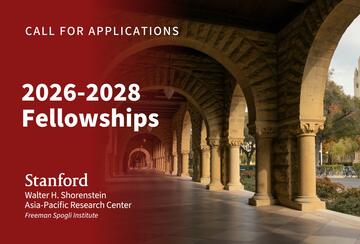
The center offers multiple fellowships in Asian studies to begin in fall quarter 2026. These include a postdoctoral fellowship on political, economic, or social change in the Asia-Pacific region, postdoctoral fellowships focused on Asia health policy and contemporary Japan, postdoctoral fellowships and visiting fellow positions with the Stanford Next Asia Policy Lab, and a visiting fellow position on contemporary Taiwan.

The new volume, edited by Stanford historian Yumi Moon, examines the experiences of Asian populations displaced by the conflict between the United States and the Soviet Union.

Despite rising health care spending, adults in South Korea’s lowest-income quintile experience the smallest relative improvement in life expectancy and well-being, according to a new study. The co-authors, including Stanford health economist Karen Eggleston, call for the country’s health policy to prioritize both equity and value, and highlight lessons for other health systems.
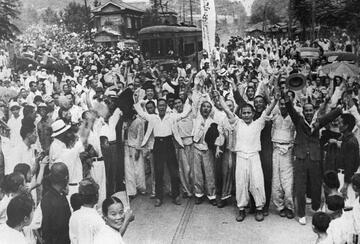
Within Asia, World War II memories and commemorations are not only different from those in the United States but also divided and contested, still shaping and affected by politics and nationalism. Only when U.S. and Asian leaders come together to mark the end of the Asia-Pacific war can they present a credible, collective vision for the peace and prosperity of this important region.
Jihui Seong (MA '25 East Asian Studies) is the recipient of the 14th annual Korea Program Prize for Writing in Korean Studies, for her thesis "A Truce Built on Tension: The Korean War Armistice Negotiations and the Strategic Divergence Between Allies."
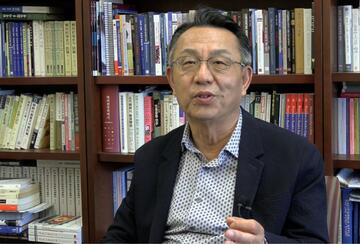
In his new book, The Four Talent Giants, Shin offers a new framework for understanding the rise of economic powerhouses by examining the distinct human capital development strategies used by Japan, Australia, China, and India.
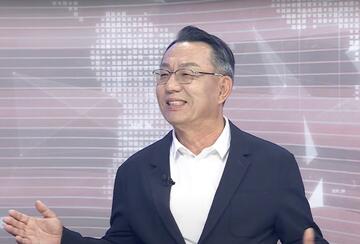
In an interview with Arirang TV, Shin unpacks the implications of South Korea's new president's high-stakes trip and the challenges ahead as he pushes for "pragmatic diplomacy."

South Koreans have elected Lee Jae-myung president. Will he be a pragmatic democratic reformer? Or will he continue the polarizing political warfare of recent South Korean leaders?

A comprehensive review of rapidly aging South Korea’s efforts to mitigate the social and economic costs of Alzheimer’s disease and related dementias, co-authored by Stanford health economist Karen Eggleston, provides insights for nations facing policy pressures of the demographic transition.
As he prepares to step down as APARC director, Professor Gi-Wook Shin reflects on two transformative decades at the center and the road ahead.

Despite the nation’s rapidly aging demographics, South Korea's economy has not adapted as well as the United States, a new study finds. The researchers, including Stanford health economist and director of the Asia Health Policy Program at APARC Karen Eggleston, show that age-friendly jobs attract a broad range of workers and that structural barriers in the labor market influence which groups can access these roles.
The Center’s new cohort of seven scholars pursues research spanning diverse topics across contemporary Asian studies.

A Stanford student and four recent alumni who served as research assistants at the Stanford Next Asia Policy Lab will begin doctoral studies at top institutions in fall 2025. At the lab, which is committed to rigorous, policy-relevant research and student mentorship, they gained hands-on experience and honed skills valuable for the next stage of their academic journeys.

In an interview with the Chinese newspaper The Paper, Gi-Wook Shin, the director of APARC and the Korea Program, discusses the risks posed by South Korea’s division and polarization following President Yoon’s impeachment, the global trend of democratic decline, and actionable reforms to advance and secure South Korea’s democratic future.

